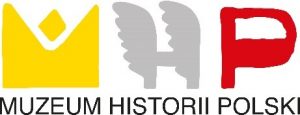
The Museum of Polish History in Warsaw (MHP)
The Museum of Polish History in Warsaw (MHP) presents the most important currents in the history of the Polish state and nation with particular emphasis on topics dealing with parliamentary tradition, institutions, civic movements and Poland’s struggle for freedom and independence.
The Museum actively promotes Poland’s international image by presenting Polish history and culture to foreign audiences in an interesting and easy-to-grasp manner. Therefore, the Museum participates in the international dialogue and it focuses on Poland’s immediate neighbors. The MHP fulfills its task openly and it strives to ensure the widest possible availability of Poland’s national heritage and scientific resources in order to make use of their digital potential. The MHP organizes a competition called the Historical Event of the Year to honor the organizers, creators and initiators of the most interesting historical projects.

The National Heritage Board of Poland (NID)
The National Heritage Board of Poland (NID) promotes Polish heritage in Poland and abroad. It also deals with elaborating expert opinions on monuments and analyzing and monitoring threats to the national heritage. In Poland, the Institute coordinates the largest European social-educational project called European Heritage Days. This is a joint initiative by the Council of Europe and the European Union aimed at promoting monuments.

The National Institute of Museology and Preservation of Collections (NIMOZ)
The National Institute of Museology and Preservation of Collections (NIMOZ) specializes in collecting and disseminating knowledge about museums, museum collections and co-creating standards pertaining museology and preservation of collections. It also promotes the most significant Polish museum achievements abroad.

The National Institute of Polish Cultural Heritage Abroad (POLONIKA)
The National Institute of Polish Cultural Heritage Abroad (POLONIKA) focuses on research, protection and dissemination of knowledge about the Polish cultural heritage abroad. Projects implemented by the Institute are conducive to preserving the cultural heritage, they enhance social consciousness about its importance as a material part of European and world heritage and also a factor that fashions national identity.
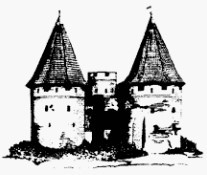
The Castle Museum in Malbork
The Castle Museum in Malbork and its subordinate Kwidzyn and Sztuma castles constitute a most significant cultural heritage. The facility has twenty-three collections in the field of art, craftsmanship, architecture and history. The most interesting of them are collections of amber products, military items, numismatic items, architectural details and sculptures. The Malbork Castle is placed on the UNESCO list of World Heritage Sites. The Museum participates in international cooperation programmes such as for example the interdisciplinary research program The Ecology of the Crusades.
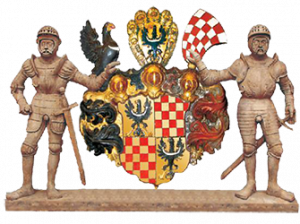
Museum of the Silesian Piast in Brzeg
Museum of the Silesian Piast in Brzeg deals with the history of the Silesian Piast and the Piast traditions in the historical Piast area and it collects artifacts related to the history of the city and the Brzeg Region. The museum organizes exhibitions and runs educational programmes and workshops for children, youth, students and seniors.
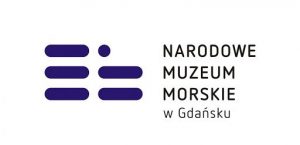
The National Maritime Museum in Gdansk (NMN)
The National Maritime Museum in Gdansk (NMN) collects, preserves and digitizes relics related to shipping, boat building, ship building, marine painting, fishery and promotes knowledge about Poland’s maritime history. NMN participates in the work of the Baltic Region Heritage Committee and of the Baltic Sea Region Integrated Maritime Cultural Heritage Management (BALCTIRIM).

The Jozef Pilsudski Museum in Sulejowek
The Jozef Pilsudski Museum in Sulejowek implements its mission by showing the Marshal’s character and disseminating the values that he cherished – national pride, patriotic attitude, dedication to work for the country and respect for tradition. The museum created a Youth Council of the Jozef Pilsudski Museum in Sulejowek – the first museum advisory body in Poland that meets the needs of young people in cultural institutions and enables young people to create their own projects based on the museum’s resources. The museum organizes the Dialogue of Two Cultures – a scientific conference that takes place every year. On the 150th anniversary of the Marshal, the museum arranged an exhibition called A Polish and European Statesman that is shown abroad.

The Museum of John Paul II and Primate Wyszynski
The Museum of John Paul II and Primate Wyszynski disseminates knowledge about the personal stories of Karol Wojtyla and Stefan Wyszynski. It is the depository of those extraordinary individuals’ tales about their childhood, families, calling and the road that led them to the Church. By virtue of quotations and movies they appear not just as church leaders but living teachers. Their attitude when they both faced family tragedies, their behaviour during complex historical events and reactions to their tormentors may be inspiring in their universality. The Museum cooperates with museums and research centres in Italy and it co-organizes international study visits.
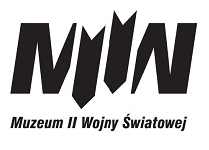
The Museum of World War II in Gdansk
The Museum of World War II in Gdansk collects and shows exhibits from World war II with special emphasis on the site of its outbreak in Poland. The mission of the museum is to fashion the historical narrative enabling a modern presentation of World War II based on experiences of Poles and Poland. The museum takes into account the pre-war world of politics and, especially, the attitude of people towards wartime reality and the nightmare of Poland’s occupation by two totalitarian regimes. The museum also presents the fate of other nations involved in the largest military confrontation of the 20th century. The museum runs exhibition projects, international educational and cultural programmes such as the exhibition Million from overseas, the international conference World Battlefield Forum and trips abroad for children and young people called Changing perspective.
 Markowa Ulma-Family Museum
Markowa Ulma-Family Museum
Markowa Ulma-Family Museum of Poles Who Saved Jews in World War II implements its mission by showing the heroic attitude of Poles who helped Jews during the German occupation endangering their own life and that of their families. The museum shows Polish-Jewish relations during the Holocaust and disseminates knowledge about the fate of the Ulma family from Markowa. This is the only museum of its kind in Poland that deals with the topic of rescuing Jewish population in Poland’s occupied territories during the Holocaust. The museum organizes international study visits and it creates mobile exhibitions dedicated to the topic of Poles saving Jews during the Holocaust, the tragedy of Holocaust and Polish-Jewish relations.
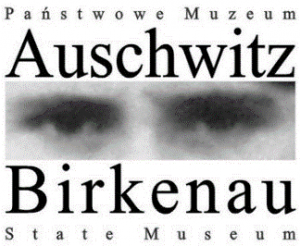 Museum and Memorial Auschwitz-Birkenau
Museum and Memorial Auschwitz-Birkenau
Museum and Memorial Auschwitz-Birkenau is tasked with gathering collections made up of movable property remaining after Kl Auschwitz and documents in connexion with the camp, with securing areas of the former KL Auschwitz and disseminating the history of Kl Auschwitz especially with regard to future generations. The area of the former, Nazi concentration and extermination camp is on the list of UNESCO’s World Heritage Sites. The Museum houses the International Center for Education about Auschwitz and the Holocaust that cooperates with a great many institutions all over the world. The Museum organizes an International Summer Academy for educators and teachers from all over the world.
![]()
The State Museum of Majdanek
The State Museum of Majdanek is the only martyrology museum in the world that was set up already during World War II. It is taking care of the materials remains of three German crime sites – the Majdanek concentration camp and the Belzec and Sobibor extermination camps. The museum focuses on historical education about German occupation in the Lublin region. The museum works out specialized programs of meeting and workshops, it organizes historical workshops for young people, study visits for adults and implements international historical and educational projects as for example the museum’s cooperation with the Friedrich von Bodelschwingh Bethel Schools from Bielefeld.
![]() The Stutthof Museum in Sztutow
The Stutthof Museum in Sztutow
The Stutthof Museum in Sztutow is located on the ground s of the former KL Stutthof concentration camp. Generations of Museum employees have become guardians of the memory and suffering of thousands of victims. The Museum protects and preserves the national heritage by means of its educational, exhibition, scientific and documentation activities. In the framework of the programme Fate of Poles in German concentration camps in the west of Europe the Museum collects documents and other souvenirs in connexion with the tragic fate of our countrymen in German concentration camps in the west of Europe. The Museum also organizes conferences and encounters of Polish and foreign museologists.
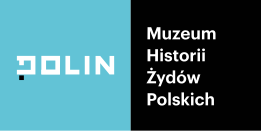
POLIN Museum
POLIN Museum of the History of Polish Jews shows many centuries of the history of Polish Jews. The main task of the Museum is to restore and preserve the memory of the history of Polish Jews, to promote the ideas of openness, tolerance and truth thus contributing to mutual understanding and respect among Poles and Jews, European societies and the peoples of the world. The Museum organizes exhibitions and conducts educational programmes. In connexion with its multi-faceted cooperation with foreign institutions, the museum organized a temporary exhibition called Poles risking their lives – Poles saving Jews during the Holocaust which was translated into 10 languages. One of the programmes of the Museum is the Global Education Outreach Program (GEOP) which consists of international scientific workshops, conferences, lectures and seminars.
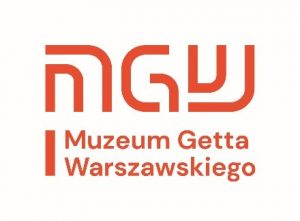
Warsaw Ghetto Museum
The objective of the Warsaw Ghetto Museum is to present the tragic events that took place during the occupation of Poland by Germany during World War II and to commemorate the memory of those who lived and suffered in the Warsaw ghetto. The Museum came into being in 2018 in the renovated building of the former Bersohn and Bauman’s Children’s Hospital at 60, Sienna St. located within the confines of the former ghetto. The Warsaw
Ghetto was the largest of all the ghettos in German-occupied Europe. In April, 1941, more than 400 000 people were crammed into an area of some 3 km². Thanks to its location the Museum is a hallmark of pre-war Jewish Warsaw next to such preserved monuments as the Nozyki Synagogue, the Jewish Historical Institute and the Jewish Cemetery at Okopowa Street.
Saint John Paul II Memory and Identity Museum
The Saint John Paul II Memory and Identity Museum came into being in 2018 and its goal is to present the over 1,000-year history of Christian Poland and yet to avoid schematic chronology. The history of the country on the banks of the Vistula river is presented from many perspectives thus enabling a differentiated reception but with particular emphasis on the teachings of Pope John Paul II. The museum, located in Toruń, is tasked with promoting Poland’s history, the Polish heritage, to cultivate concepts of freedom and solidarity as well in Poland as abroad.

Institute of Solidarity Heritage
The mission of the Institute of Solidarity Heritage is to disseminate knowledge about the emergence and significance of Solidarity and to explore and preserve its history and authentic heritage. Among the objectives of the Institute is the commemoration and promotion in Poland and abroad of the historic heritage of the Independent Self-Governing Trade Union “Solidarity”, the social movement and the anti-Communist democratic opposition in Poland with particular emphasis on the civil unrest in August, 1980. The Institute researches the history of the Independent, Self-Governing Trade Union “Solidarity” and it initiates cultural, social and scientific events that are related to the tradition of the Solidarity movement. The goal of the Institute is also to make international opinion aware of the Polish contribution to the downfall of Communism.
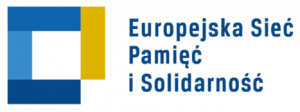
The European Network Remembrance and Solidarity
The European Network Remembrance and Solidarity deals with research, documentation and dissemination of knowledge about contemporary history and, in particular, totalitarian and authoritarian regimes in the 20th century, the causes of their emergence, their history and repercussions of their existence, the fate of the victims of war and conquest, forced migrations, crimes and racial, nationalist and ideological persecution and also opposition to totalitarian regimes and the struggle of European societies against them. The ENRAS initiates cooperation between institutions and individuals who deal with European history in the 20th century and it locates, analyses, documents and disseminates knowledge of history. The Institute organizes conferences, workshops, study visits, exhibitions and publication projects. Poland, Germany, Hungary, Romania and Slovakia are members of the Network. One of the international projects of the Institute is the outdoor exhibition After the Great War. New Europe 1918-1923 aimed at showing the fashioning of a new international order after World War I.
![]()
The Northern Institute (Instytut Północny)
The Northern Institute (Instytut Północny) named after Wojciech Kętrzyński in Olsztyn is a state culture institution founded in 2018. Its mission is to popularize knowledge about the territory of former Prussia and especially the area of northern-eastern Poland. The Institute collects, preserves and is the custodian of scientific materials pertaining to the history and heritage of Warmia and Mazury.
![]()
The Silesian Institute (Instytut Śląski)
The mission of the Silesian Institute (Instytut Śląski) is to implement remembrance policy in the Silesia area within its historical boundaries, to create a scientific foundation fore the development of knowledge about the history and cultural heritage of Silesia with particular emphasis on the history and cultural heritage of the Popish population inhabiting this region. The Institute implements its mission by documenting Silesian issues and especially Silesia’s current situation and the historical links of the Silesian region with other Polish areas.
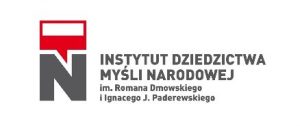
The Institute of the Heritage of Nationalistic Thought named after Roman Dmowski and Ignacy Jan Paderewski
The Institute of the Heritage of Nationalistic Thought named after Roman Dmowski and Ignacy Jan Paderewski was founded in 2020. The mission of the Institute is to implement remembrance policy with regard to Poland’s history and heritage including the legacy of Polish social and political philosophy with particular emphasis on Polish national, Catholic-social and conservative philosophy, research pertaining to Poland’s history and heritage, creation of scientific foundation for the development of knowledge about Poland’s history and heritage. The Institute implements its objectives my means of publications, documentation and promotion and by digitising and making available materials dealing with the objective of the Institute.

The Office of the „Independent” Programme
The Office of the „Independent” Programme coordinates various initiatives organized to celebrate the jubilee of the centenary of regaining independence by the Republic of Poland and the reconstruction of Polish statehood. Poles are inspired to a joint celebration of this event by values which they hold dear and, namely, freedom, respect of human dignity and rights and solidarity. The Office implements its tasks in accordance with the assumptions of the Multiannual “Independent” Programme for the years 2017-2022 the main objective of which is strengthening of civic solidarity. The program assumes activity in three areas. The first area concerns projects managed by national culture institutions reporting to the Ministry of Culture, National Heritage and Sports. The second area is managed by the Office of the “Independent” Programme that operates grant programmes: “Coalition for Independent” (a programme that supports the organization of the jubilee by civic initiatives) and “Independent” (aimed at local government culture institutions and NGOs). The Adam Mickiewicz Institute is in charge of the foreign celebration of the jubilee (the third area).


